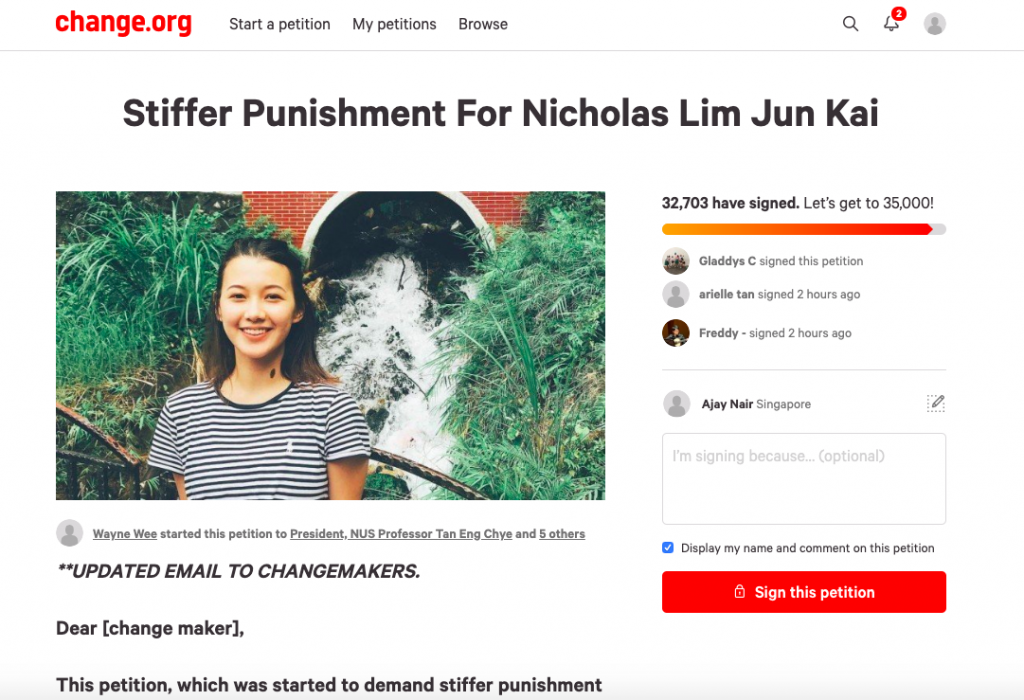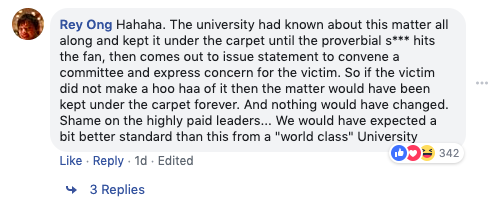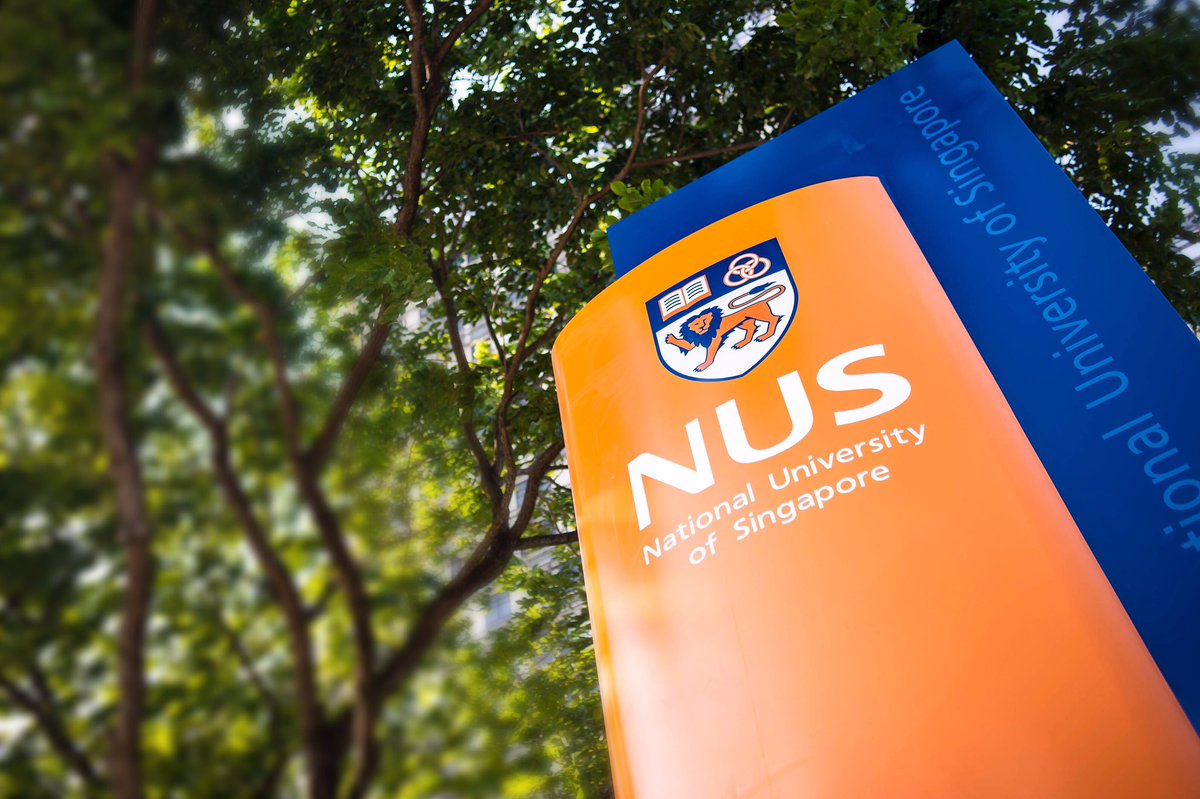Reactions from the online community were swift and vicious. What do the responses in the aftermath of this incident tell us about our society, how far it’s come, where it’s at right now, and where do we go from here?
First and foremost, the public responded with anger. Swiftly, several student groups submitted a statement to voice their concern; separately, five hundred students put up a statement of concern addressed to NUS’ senior management, calling for the college to take a stronger stance against sexual harassment and abuse of this nature.
As of right now, a petition supporting ‘Stiffer Punishment’ for the perpetrator has over 32,000 signatories on change.org.

These two channels are:
(a) the justice system, represented by the police and the Attorney General’s Chambers (AGC), and
(b) NUS, represented by the Board of Discipline (BOD) responsible for the case.
The justice system handed down a 12-month conditional warning, while NUS suspended the perpetrator for a semester, and assigned him mandatory counselling.
Rumours abounded that the perpetrator had escaped more stringent punishment from the school, and in fact from the justice system, because of well-connected and influential parents. In fact, many netizens were quick to jump to this as the root cause behind the system’s failure to suitably punish the guilty.
These claims were proven to be unfounded, as the Singapore Police Force (SPF) said in a statement to media that the case followed due process, pointing out that the perpetrator’s parents are in fact a driver and housewife.
Of course, a cursory overview of past prosecutions for similar crimes would have highlighted that other cases involve perpetrators who were more persistent in their efforts and attempts to avoid being caught; something that escaped the notice of the ‘rich parents’ lynch mob.
Perhaps we assume the conspiracy theory—that influence swayed the arm of the law—because we subconsciously want to skip over the obvious, uncomfortable question: how much punishment is enough?
Separate from the justice system, many were dissatisfied with NUS’ response to the situation. In addition to concerned private citizens, local agriculture firm OnHand Agrarian announced in a Facebook post that it would be suspending all dealings with NUS until the perpetrator in question is expelled from the school.
From an idealistic point of view, it’s a firm taking a strong stand against sexual harassment. From a cynical one, it’s a clever marketing ploy. In reality, it’s probably a little bit of both. I know that without this news, I never would have heard of the firm.
But OnHand Agrarian is just one of numerous online voices calling for the perpetrator of the crime to be expelled by NUS, in the interest of creating a safe and conducive learning environment for its female students.
Commentors pointed out that NUS appeared to be dragging out the issue instead of resolving it promptly:


Past examples, like the Singhealth Data Breach Committee of Inquiry, that ultimately resulted in little punitive action for individuals responsible, have made Singaporeans cynical. We mock ‘committees’ as the indicator of a failing system trying to cover for itself, instead of a healthy one carrying out proper oversight on its internal organs.
But consider the alternative: a world where a past sentence (this incident was ‘settled’ in January) can be re-ruled on and replaced with a harsher sentence, in response simply to public outcry. Is this is a world we want to live in?
While recourse for the present case seems impossible, the alternative is a system of double jeopardy: where the accused is punished twice for his crimes—once by the initial system process, and a second time once the hammer of public opinion falls.
A review of punishment guidelines, as well as better care for victims and survivors, is definitely called for. For the committee to convene only in August seems late and a tad dismissive, which is perhaps why NUS is organising a town hall to discuss the matter with students on Thursday. If you are a student of NUS, and want your voice heard, you should definitely go. But for this particular case, the fact that the system did not produce a suitable punishment—be it a longer suspension, or expulsion—is now irrelevant, unfortunate as it may be.
The same can be said of the justice system. Reviewing internal processes after public scrutiny is appropriate; being swayed by public opinion to retroactively hand out punishments for a closed case is not.
–
If you’ve noticed, I have chosen not to mention the names of either the perpetrator or the victim of this crime; that’s because I’m sick to death of hearing them. If the recent incident has shown me anything about the Singaporean public, it’s that we are quick to respond with anger and outrage, which is a good thing, especially for such a clear-cut incident.
What concerns me is whether we will be able to retain focus on the issue of sexual harassment, once the initial buzz (and numerous articles with the victim’s face plastered over them) fades.
What’s less good, however, is that we seem unable or unwilling to zero in on the key question that begs to be answered: what do we feel is adequate punishment for a crime of this nature, and do we believe in mitigating factors that might stay the hand of justice?






